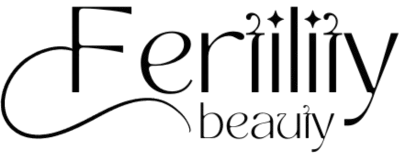Here’s an overview:
Introduction to Reproductive Endocrine Glands
I begin by examining the essential glands involved in human reproductive health. These glands include:
- Ovaries – These are crucial in females, producing eggs and hormones like estrogen and progesterone.
- Testes – In males, these glands produce sperm and secrete testosterone.
- Pituitary Gland – This small gland controls others by releasing hormones such as LH and FSH.
- Hypothalamus – It links the endocrine system to the nervous system, regulating reproductive hormones through GnRH.
- Pineal Gland – Though mainly known for melatonin, it plays a role in reproductive timing and function.
Overview of Human Endocrine System
I find the human endocrine system fascinating. It involves several glands that secrete hormones into the bloodstream.
- Pituitary gland: Often called the “master gland,” it regulates other endocrine glands.
- Thyroid gland: Controls metabolism and energy levels.
- Adrenal glands: Produce cortisol and adrenaline, vital for stress response.
- Pancreas: Regulates blood sugar levels through insulin and glucagon.
Each gland plays a unique role. Their hormones act as messengers, coordinating various bodily functions. Understanding this system helps in diagnosing and treating hormonal imbalances. The complexity of these interactions underscores its significance in overall health.
Key Hormones Produced by Reproductive Glands
The reproductive glands are vital in producing essential hormones.
- Estrogen: The ovaries produce estrogen, regulating the menstrual cycle and supporting pregnancy.
- Progesterone: Ovaries also produce progesterone, helping to maintain the early stages of pregnancy.
- Testosterone: The testes produce testosterone, critical for developing male secondary sexual characteristics and sperm production.
- Inhibin: Both ovaries and testes produce inhibin, which aids in regulating follicle-stimulating hormone (FSH) levels.
- Relaxin: Produced during pregnancy by ovaries and placenta, relaxin relaxes the uterus and prepares the body for childbirth.
Each hormone plays a distinct yet interconnected role, essential for reproductive health and overall well-being.
Anatomy and Physiology of Ovaries
I find the anatomy and physiology of the ovaries to be fascinating. Each ovary, located on either side of the uterus, is about the size of an almond. They play a pivotal role in reproductive health and function.
Anatomy of Ovaries
- Follicles: I note that these small sacs contain immature eggs.
- Medulla: Located centrally, consisting of connective tissues, blood vessels, and nerves.
- Cortex: Contains the ovarian follicles and stroma.
Physiology of Ovaries
- Oogenesis: I observe the process where follicles mature and eggs are released.
- Hormone Production: Ovaries produce estrogen and progesterone, crucial for regulating menstrual cycles and pregnancy.
- Ovulation: Controlled by luteinizing hormone (LH) and follicle-stimulating hormone (FSH).
Understanding the Role of Testes
As an integral part of the male reproductive system, I know that the testes have crucial functions. Firstly, they produce sperm, necessary for reproduction. Secondly, they secrete testosterone, which influences various physiological processes.
Primary functions include:
- Spermatogenesis: I am aware that this is the formation of sperm cells.
- Hormone Production:
- Testosterone: I see it regulating sex drive, bone mass, fat distribution, and muscle strength.
- Inhibin: Helps manage the production of sperm.
The testes ensure proper reproductive and endocrine functionality in males.
Hormonal Regulation of the Menstrual Cycle
As I delve into the hormonal regulation of the menstrual cycle, several key hormones play crucial roles:
- Follicle-Stimulating Hormone (FSH):
- Initiates follicle development in the ovaries.
- Peaks in the first half of the cycle.
- Luteinizing Hormone (LH):
- Triggers ovulation.
- Surges mid-cycle to prompt the release of an egg.
- Estrogen:
- Thickens the endometrial lining.
- Increases until just before ovulation.
- Progesterone:
- Prepares the uterus for possible pregnancy.
- Dominates the second half of the cycle.
These hormones interact in intricate feedback loops, ensuring proper cycle progression.
Impact of Reproductive Hormones on Fertility
I know reproductive hormones play a crucial role in regulating fertility. These hormones, including estrogen and testosterone, are produced by the gonads.
- Estrogen: In women, estrogen regulates the menstrual cycle and prepares the uterine lining for implantation.
- Progesterone: Supports pregnancy by maintaining the uterine lining.
- Testosterone: In men, testosterone is essential for sperm production and libido.
Hormonal imbalances can result in infertility. Conditions like polycystic ovary syndrome (PCOS) and hypogonadism disrupt normal hormonal levels. Regular hormone level testing helps in diagnosing such conditions early.
Reproductive Glands and Sexual Development
I have extensively studied the roles of reproductive glands in sexual development. The reproductive glands include:
- Ovaries: Produce eggs and secrete hormones like estrogen and progesterone.
- Testes: Produce sperm and release testosterone.
The hormones from these glands regulate:
- Puberty: Onset of secondary sexual characteristics.
- Menstrual Cycle: Controlled by estrogen and progesterone.
- Spermatogenesis: Testosterone’s role in sperm production.
- Sexual Function: Hormones influence libido and sexual function.
These glands are vital for reproductive health and overall sexual development.
Hormonal Changes During Pregnancy
During my pregnancy, there are significant hormonal changes that help support fetal development. These changes primarily involve:
- Estrogen: Levels increase to promote uterine growth and blood flow to the placenta.
- Progesterone: Maintains the uterine lining and prevents contractions early in pregnancy.
- Human Chorionic Gonadotropin (hCG): Peaks early to support the corpus luteum, ensuring continued progesterone production.
- Relaxin: Relaxes pelvic ligaments to support childbirth.
- Prolactin: Prepares mammary glands for lactation.
Understanding these hormonal shifts is crucial for managing the health of both the mother and the developing baby effectively.
Reproductive Endocrine Disorders and Their Management
As I have encountered in my practice, reproductive endocrine disorders can manifest in numerous ways. Common conditions include:
- Polycystic Ovary Syndrome (PCOS): It results from hormonal imbalances causing irregular periods and infertility.
- Hypogonadism: It leads to reduced production of sex hormones, affecting puberty and fertility.
- Thyroid Disorders: Both hyperthyroidism and hypothyroidism impact menstrual cycles and fertility.
- Endometriosis: Though not strictly an endocrine disorder, it involves hormone-dependent tissue growth causing pain and infertility.
Managing these disorders often involves:
- Medication: For hormone regulation.
- Surgery: In cases like endometriosis.
- Lifestyle Modifications: Diet and exercise play crucial roles.
- Assisted Reproductive Technologies (ART): For severe cases.
Advancements in Treating Reproductive Endocrine Issues
I’ve noticed significant advancements in treating reproductive endocrine issues. The most remarkable breakthroughs include:
- In-Vitro Fertilization (IVF): Enhancements in IVF techniques allow for higher success rates.
- Hormone Replacement Therapy (HRT): Novel, tailored HRT approaches better balance hormonal levels.
- Gene Editing: CRISPR technology shows promise in rectifying genetic disorders affecting reproductive health.
- Telemedicine: Provides easier access to specialists for remote monitoring and consultation.
- Customized Medication: Advancements in pharmacogenomics offer more personalized treatment plans.
- Artificial Intelligence (AI): AI improves diagnosis accuracy and treatment efficacy.
These innovations significantly contribute to improved outcomes for individuals facing reproductive endocrine challenges.
Lifestyle Factors Influencing Reproductive Gland Health
Maintaining reproductive gland health hinges on various lifestyle choices. I emphasize balanced nutrition for hormone production. Foods rich in omega-3 fatty acids, zinc, and antioxidants support gland functionality.
- Diet: Consuming fruits, vegetables, and whole grains is essential.
- Exercise: Regular physical activity enhances endocrine health.
- Stress Management: Chronic stress hampers hormone levels. Techniques like meditation can help.
- Sleep: Adequate sleep is crucial for hormonal balance.
- Avoiding Toxins: Exposure to pesticides and chemicals disrupts reproductive hormones.
“The harmony between lifestyle and endocrine health dictates overall well-being.”
Preventive Care and Maintenance of Reproductive Health
I focus on several key aspects to keep my reproductive system healthy. Regular check-ups with a healthcare provider ensure any potential issues are detected early. Annual examinations, including Pap smears and hormone level tests, are vital.
- Healthy diet: I consume foods rich in essential vitamins and minerals like zinc and folic acid.
- Exercise: Consistent physical activity helps regulate hormone levels.
- Stress management: Practices like yoga and meditation reduce stress, which positively impacts my hormones.
- Avoid harmful substances: I avoid smoking, excessive alcohol, and limit caffeine intake.
Reliable birth control methods allow me to manage reproductive health effectively.
Integrating Reproductive Health in Overall Well-Being
As I explore the connection between reproductive health and overall well-being, the importance of integrating these aspects becomes evident. Reproductive endocrine glands significantly influence numerous bodily functions. Key areas of impact include:
- Emotional Health: Hormonal balance affects mood regulation and mental clarity.
- Physical Health: Proper reproductive gland function ensures optimal skin health and energy levels.
- Long-term Health: Hormonal imbalances can lead to chronic conditions such as cardiovascular disease and osteoporosis.
Understanding these relationships grants me a comprehensive view, emphasizing the necessity of holistic healthcare approaches.
Conclusion and Future Perspectives on Reproductive Endocrine Glands
I recognize the critical role that reproductive endocrine glands play in various physiological processes. Advances in research are continually revealing:
- New hormonal interactions
- The impact of environmental and genetic factors on gland function
- Potential therapeutic targets for disorders
I foresee substantial progress in precision medicine, leveraging personalized hormonal treatments. Prioritizing funding for research and fostering interdisciplinary collaboration will be essential. Additionally, educating the public about reproductive health will empower individuals to make informed decisions, thereby enhancing overall well-being and quality of life.

